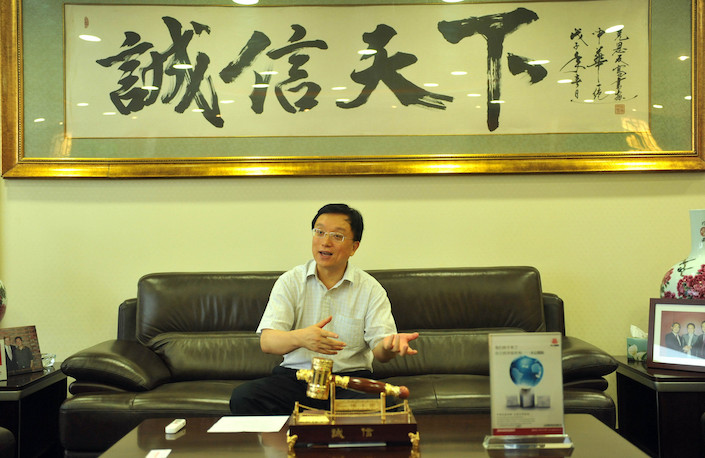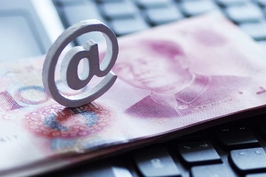Want a Better Credit Rating? Buy Our $1.4 Million Software

* Dagong’s software cost around 9.7 million yuan, plus an annual service fee of about 800,000 yuan
* Some of the companies benefited from the higher credit ratings, which allowed them to borrow funds at lower interest rates
All companies looking for cheaper credit had to do was buy some expensive, useless software.
That’s the deal one of China’s largest credit ratings agencies had been offering to companies whose securities it rated, Caixin has learned from multiple sources with knowledge of the matter.
The details of the deal shed light on what Dagong Global Credit Rating Co. Ltd. did to get punished in a scandal that has further undermined the credibility of an industry designed to protect investors by providing them with impartial information.
On Friday, China’s top securities regulator and a central bank-backed industry group banned Dagong from taking on new securities rating business for a year in one of the harshest punishments ever against a Chinese credit ratings agency.
When the punishment was announced last week, the regulators revealed (link in Chinese) that Dagong was charging the companies that it rated exorbitant fees for consulting services, without offering details (link in Chinese) about the services.
Caixin has learned that Dagong required at least 26 bond issuers to purchase its consulting software before it would increase their ratings or the ratings of their bonds.
The software did little to improve the companies’ business, according to a bond market source who knows people who used it.
It also didn’t come cheap. “The (Dagong) software cost around 9.7 million yuan ($1.4 million), with an annual service fee of about 800,000 yuan,” a source at a securities firm told Caixin. “Many companies had quite a problem with this.”
Typically, a bond issuer pays a credit ratings agency between 200,000 yuan and 500,000 yuan for a rating.
The companies involved in the scandal include local state-owned enterprises and several well-known listed companies, such as home renovation store operator Red Star Macalline Group Corp. Ltd. and drugmaker Shenzhen Neptunus Bioengineering Co. Ltd.
Some of the companies benefited from the higher credit ratings, which allowed them to borrow funds at lower interest rates, the bond market source said. Essentially, the companies being rated were colluding with the agency rating them.
The regulators began investigating Dagong in July after receiving a tip from a whistleblower, Caixin has learned.
Linking the ratings business with other businesses has hurt Dagong’s credibility, a senior executive with a ratings agency told Caixin.
The government has implemented a series of rules for the credit ratings industry, but has not yet specified what constitutes a conflict of interest. Authorities plan to launch new rules to address the issue, sources close to the authorities told Caixin.
China is also further opening up its bond market by allowing foreign players to independently assess the quality of bonds on the country’s interbank bond market, in a bid to encourage fair competition and improve the industry’s credibility.
Contact reporter Lin Jinbing (jinbinglin@caixin.com)
- 1Cover Story: China Carves Out a Narrow Path for Offshore Asset Tokenization
- 2Drownings Shake Chinese Enthusiasm for Travel to Russia
- 3Over Half of China’s Provinces Cut Revenue Targets
- 4Li Ka-Shing’s Port Empire Hit by Forced Takeover Amid Panama Legal Dispute
- 5In Depth: China’s Mutual Fund Industry Faces Overhaul After a Banner 2025
- 1Power To The People: Pintec Serves A Booming Consumer Class
- 2Largest hotel group in Europe accepts UnionPay
- 3UnionPay mobile QuickPass debuts in Hong Kong
- 4UnionPay International launches premium catering privilege U Dining Collection
- 5UnionPay International’s U Plan has covered over 1600 stores overseas






